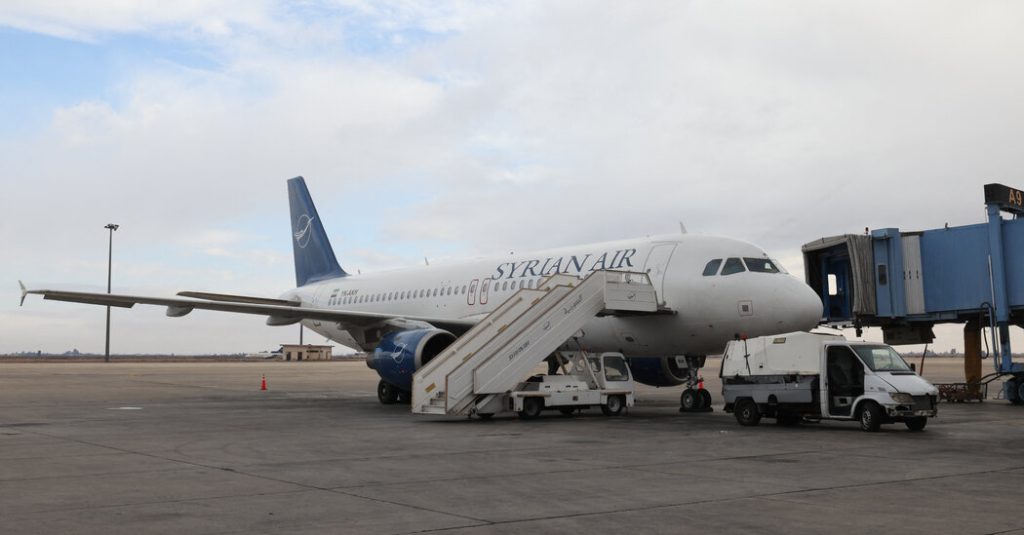The surprising overthrow of Syrian President Bashar al-Assad after 14 years of brutal civil war has ushered in a new era of uncertainty and tentative hope. Ahmad al-Shara, the leader of Hayat Tahrir al-Sham, the Islamist group that spearheaded the unexpected assault on the Assad regime, has assumed de facto leadership and faces the monumental task of rebuilding a shattered nation. Syria’s international airport in Damascus, a symbol of connection to the outside world, is set to reopen next week, marking a symbolic step towards normalcy and recovery. However, challenges abound, including simmering tensions and sporadic violence along the Lebanese border, remnants of Assad loyalists still at large, and the complex task of unifying a fragmented country with numerous armed groups vying for power.
Al-Shara has embarked on a diplomatic offensive, meeting with Western officials and projecting an image of moderation to reassure both the Syrian populace and the international community. He has emphasized the importance of stability and pledged to address security concerns, particularly the recent border clashes with Lebanon. Following a conversation with Lebanese Prime Minister Najib Mikati, al-Shara assured him that Syrian authorities are committed to quelling border violence and preventing further incidents. This commitment to regional stability is crucial, as neighboring countries fear the potential spillover of chaos from a destabilized Syria. The al-Shara government is actively pursuing the integration of various militant groups under a unified military command, appointing a new acting defense minister to oversee this complex and potentially volatile transition.
The legacy of Assad’s reign, marked by brutal repression and a complex web of alliances and rivalries, continues to haunt Syria. Turkish-backed fighters persist in their conflict with Kurdish forces in eastern Syria, where the Kurds have established an autonomous region. Sporadic clashes between the new regime and pockets of Assad loyalists further complicate the security landscape. New government forces are actively pursuing these remnants of the old regime, conducting searches and arrests near Homs, once a focal point of the uprising against Assad. The new government’s ability to effectively neutralize these remnants and prevent a resurgence of loyalist resistance will be crucial for establishing lasting stability.
The international community is watching closely as Syria navigates this delicate transition. Israel, wary of potential threats emanating from Syrian territory, continues its bombardment of military sites within Syria and has reinforced its presence in the once-demilitarized buffer zone. Jordan, another neighbor sharing a border with Syria, has partially closed its crossing as a precautionary measure. These actions underscore the regional anxieties surrounding Syria’s future and the potential for instability to spread.
Adding to the regional turmoil, the ongoing Israeli ground operation in northern Gaza continues to escalate tensions. Israeli forces have surrounded the Indonesian Hospital, one of the few remaining medical facilities in the area, raising concerns about the safety of patients and medical personnel trapped inside. Israel has defended its actions, citing Hamas’s alleged use of hospitals as military bases, a claim Hamas vehemently denies. These repeated raids on hospitals have become a recurring flashpoint in the conflict, further exacerbating the humanitarian crisis in Gaza.
The path forward for Syria is fraught with challenges. Al-Shara and his new government must navigate a complex political and security landscape, grappling with the remnants of the Assad regime, ongoing regional conflicts, and the urgent need to rebuild a nation scarred by years of war. The reopening of Damascus International Airport represents a symbolic step towards normalcy, but the true test will lie in the new government’s ability to establish lasting peace, security, and stability for the Syrian people. The international community will play a crucial role in supporting this transition, providing humanitarian aid, and promoting a political solution that addresses the root causes of the conflict. The future of Syria remains uncertain, but the overthrow of Assad offers a glimmer of hope for a more peaceful and democratic future, however distant that may seem. The coming months and years will be critical in determining whether this hope can be realized.











